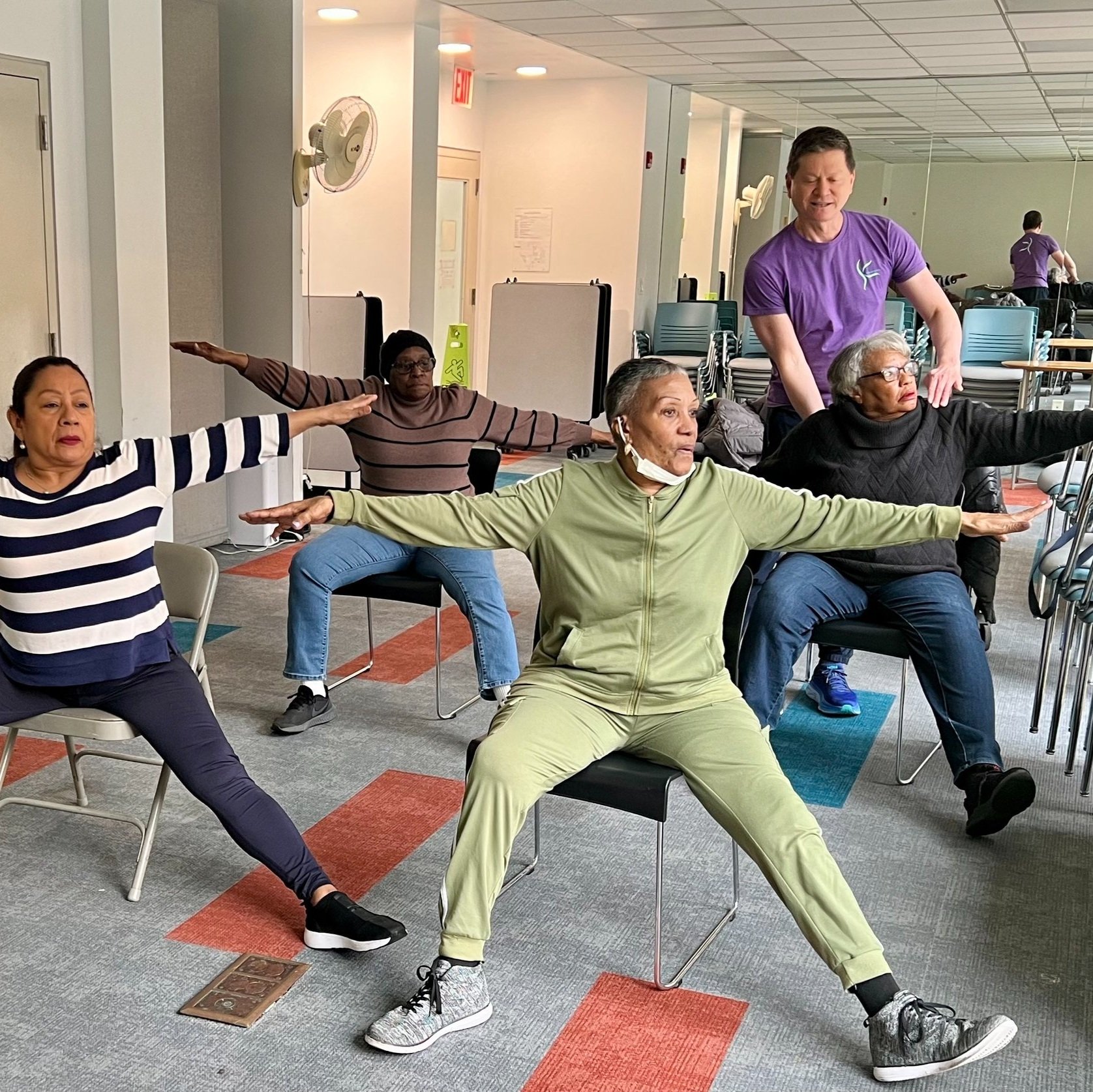Impact: Spring 2023
Since its founding in 2018, WSCF has given over $825,000 in grants to organizations in Chelsea, Hell’s Kitchen, and Hudson Yards*.
The Spring 2023 Impact Report outlines the impact of WSCF’s Fall 2022 grants and highlights a few of the grantees’ initiatives. A full annual report is forthcoming in Fall 2023.
Thank you to all of our gracious supporters. Together, we are strengthening the west side community.
*Of the $825,000, $186,000 was distributed as part of the West Side Small Business Grants in 2020
Grantee Highlights
Penn South Social Services Connecting & supporting older adults
Penn South Program for Seniors (PSPS), the flagship program of Penn South Social Services, provides services designed to allow Penn South seniors to independently stay in their homes. In 2022, PSPS launched Club Connect, a day program for older adults with progressive cognitive impairments and/or dementia. Through activities and programming, Club Connect provides socialization and connections for participants; it also provides respite opportunities for family caregivers.
“Club Connect has been a godsend to my husband, Bill, and myself, and came into our lives at a critical time. Bill, who has middle stage Alzheimer’s disease, was no longer able to be left alone at home safely. The socialization, community and activities provided in this program have helped to keep him engaged and happy in a meaningful way. The care and attention he receives from the very committed staff and social workers has been exceptional,” said Lisa, whose husband Bill is a Club Connect participant.
With the support of a WSCF grant, Club Connect added music therapy to its programming. Participants have responded well to the weekly music therapy sessions, and PSPS staff shared that for some participants, the music has transported them to a specific time and place in their lives, enabling them to recall memories that they haven’t thought about in some time.
Keoni Movement Arts Expanding access to movement arts
Keoni Movement Arts (KMA) provides classes and performance opportunities to individuals of all ages, abilities, and means. A majority of class participants have a disability or special need, and/or are economically disenfranchised.
Funding from WSCF supported KMA’s Free Community Yoga classes, which are hosted in Hell’s Kitchen. KMA offers three class formats: (1) accessible yoga, which utilizes props to better serve participants with disabilities, (2) chair yoga for seniors, and (3) yoga dance flow.
Minta Cantoral, a class participant shared, “yoga at KMA was a wonderful experience for me as a senior citizen and for my daughter, Samanta, who has Down Syndrome and autism. We learned different ways to be present, better ways to ease our tension, and safe ways to exercise. We love the guidance provided by the instructors and the attention we were given. We love the class and hope to continue.”
Adaptive Design Association Empowering students with autism
Made to Learn (M2L), a program run by Adaptive Design Association (ADA), is designed to teach students how to fabricate adaptive equipment. In partnership with special educators, ADA creates immersive adaptive design classroom experiences in local schools.
Utilizing WSCF grant funds, ADA engaged students with autism at the P138M @ Park West school. Students and staff attended 17 weekly M2L sessions, during which they learned key adaptive design skills, including techniques in cardboard carpentry and collaborative building. The curriculum equips students with pre-vocational skills, STEAM skills, and knowledge on how they can support other people with disabilities by applying the adaptive design skills they’ve learned. Ultimately, ADA’s goal is to enhance the students’ chances of graduation, employment, and/or integration into day habilitation programs.
ADA designers Adam El Sawaf and Eric Gottshall provided support and instruction. “There is a broad range of communication and learning styles amongst the students. Some use words, others use hand gestures, or they use picture boards to let us know when they have questions. It’s amazing how many pieces of adaptive equipment are produced by the students every time they visit,” said Adam. For instance, one of the students, Mohammed, has learned to craft objects that remove barriers for other students, including an adaptive seat.




